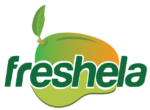 Cashew seed which is commonly known as cashew nut is a rich source of vitamins and minerals. It contains nutrients such as copper, manganese, zinc, magnesium, phosphorous and vitamin K. It is known for its rich buttery flavor and texture hence widely used in Asian cuisine. It has also become popular in the production of dairy replacements such as cashew butter, cashew milk and cashew cheese.
Cashew seed which is commonly known as cashew nut is a rich source of vitamins and minerals. It contains nutrients such as copper, manganese, zinc, magnesium, phosphorous and vitamin K. It is known for its rich buttery flavor and texture hence widely used in Asian cuisine. It has also become popular in the production of dairy replacements such as cashew butter, cashew milk and cashew cheese.
Benin Cashew Nuts
Many farmers in Benin join cooperatives in order to access large scale buyers for the farmer’s produce. The cooperatives also negotiate better prices for the farmers.
Additionally, brokers in the country act as the intermediary between the farmers and buyers. They generally have better understanding of the market prices and regulations hence use their skills in sales to attract buyers and get the best deal possible.
Cashew Nuts Price in Benin
Exports of cashew nuts from Benin were valued at just above 32 million US Dollars in 2022. It is a decrease from the previous year. The sharpest climb was from 2016 to 2017 when the export value rose from about 38 million US Dollars to around 83 million US Dollars.
Here are the total values in export of cashew nuts from Benin between 2013 and 2022
Price of Cashew Nuts per kg in Benin
The cost of a kilo of raw cashew nuts in Benin can be between 607 XOF (US0.97 Dollars) and 970 XOF (US1.55 Dollars). This is based on the average export price per kg. This wholesale price can go as high as 1251 XOF (US2 Dollars).
Cashew Nuts in Benin
Most towns and cities have local markets where you can purchase cashew nuts from local vendors and farmers. You can also purchase them from supermarkets, street vendors and grocery stores.
Benin also has buying centers which are mainly established to facilitate purchase of agricultural produce from local farmers. They serve as intermediaries between farmers and buyers who include traders, exporters, cooperatives and processors.
Exporters looking to access cashew nuts from local sources must do extensive market research to understand the demand, pricing and quality requirements of international buyers. They must also establish strong relationships with local suppliers and ensure they arrange proper transportation and storage once they have established an agreement with the farmers.
Cashew Nuts Grading
Cashew nuts that are intended for export must be sorted and graded based on their sizes. This is done using screens to separate the nuts into different sizes. The smaller nuts are mostly used for snacks and confectionery while the larger ones are preferred for processing.
Inspection
The cashew nuts must be visually inspected and sorted based on their color. Uniformity is very essential hence any discolored or stained nuts are removed to ensure that the nuts have a consistent appearance.
Drying
Cashew nuts must be dried thoroughly before they are exported. Inspectors usually use a moisture detector device for precision or press the nut with their thumb and index finger to test if there is any moisture left in the cashew nuts.
Sorting
The cashew nuts must be free from stones, broken kernels, moldy or insect damaged kernels, sticks and also stalks. Therefore, the impurities should not be more than 0.5% of 1kg sample.
Testing
Cashew nuts must undergo tests such as aflatoxin and pesticide testing to ensure the kernels comply with the maximum residue and toxin limits.
Packaging
Processed nuts are packaged in airtight material to prevent absorption of air and moisture. They are packed in either jute bags or polythene bags depending on the clients’ order. The products should also be handled carefully during transportation to minimize any damage that may cause a decrease in market value.
Final Note
Cashew farmers in Benin have a better chance of thriving in the agricultural sector. With the right support, they may get easy access to cashew buyers and earn fair prices for their goods.
